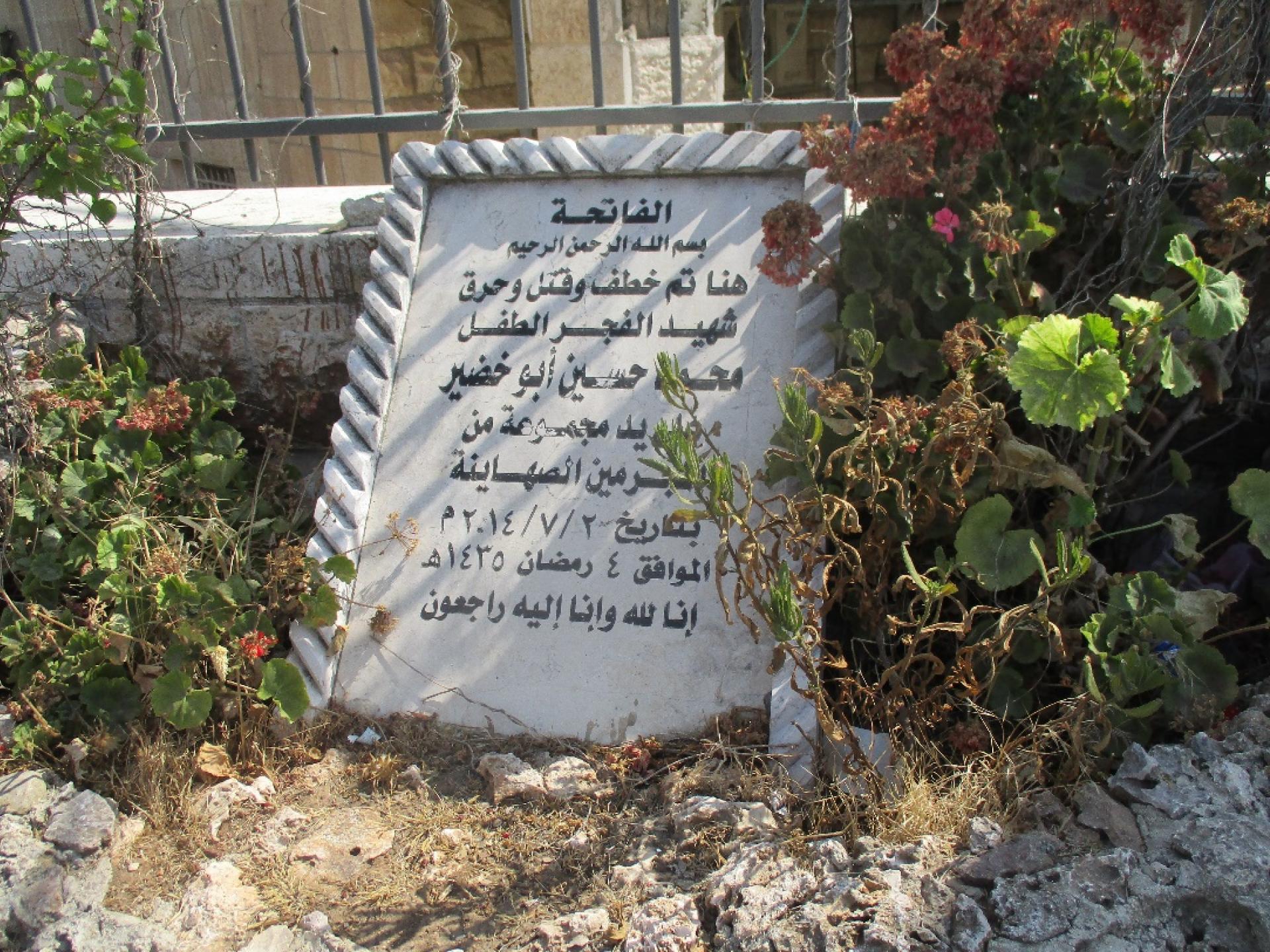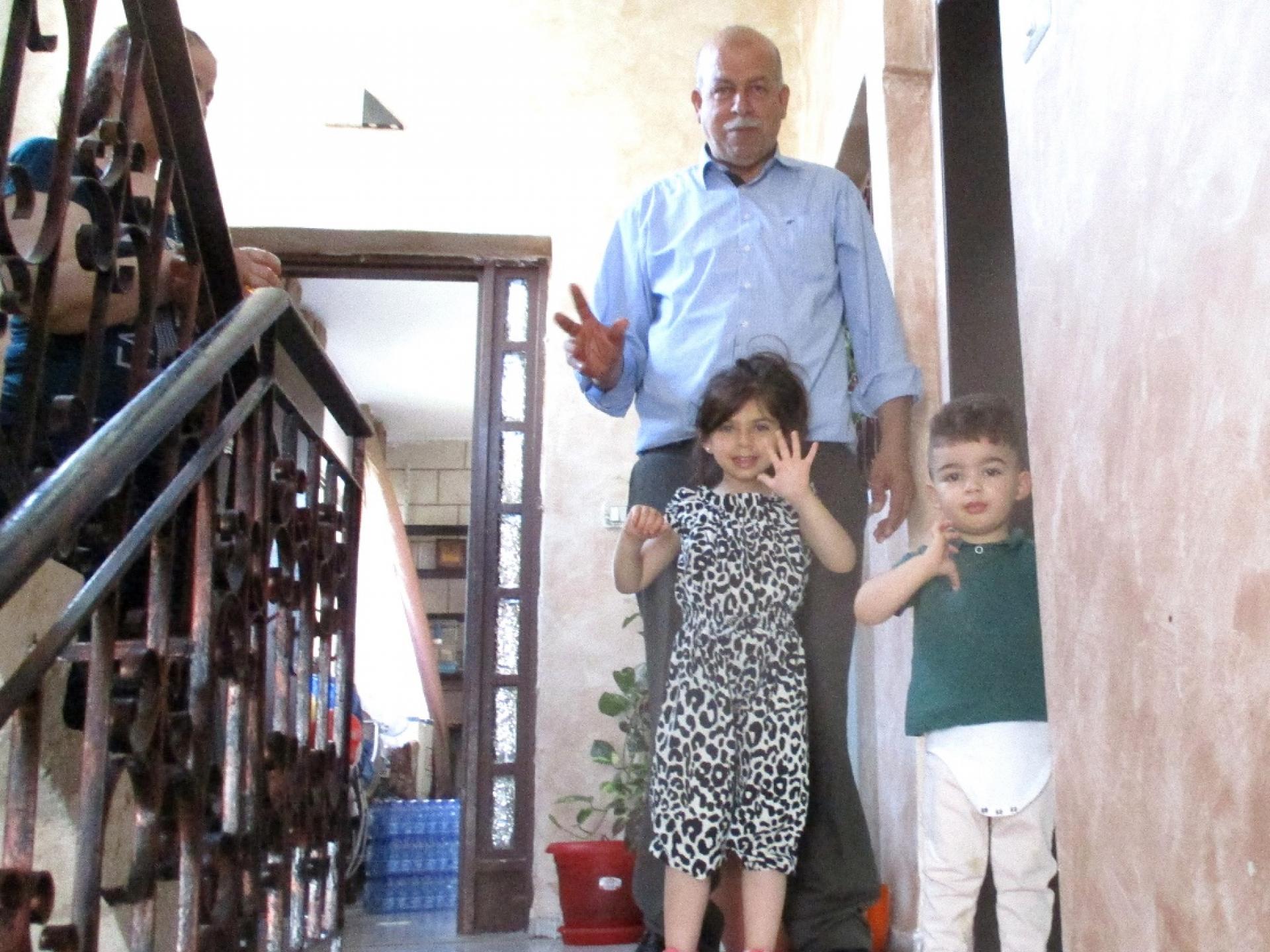Shuafat - with the Abu Khdeir family
Shu’afat – the Abu Khdeir home
Zohar is my relative and educator of the 12th grade at an anthroposophic school. She came with me and by my mediation to visit the Abu Khdeir family, in order to invite Hussein, the father, to meet her students.
Preparing themselves for this meeting, the students watch the TV series “Our Boys” and this meeting with the father along with the series is meant to have the students realize that the goings-on are not a television series but involve real human beings.
Hussein willing to meet us, and after the date and place of talking with the students, we talked about the psychological torture that Mohammad’s parents undergo ever since that horrific day. Hussein told us that for nine years now, his wife has not been sleeping more than two hours a night. For the rest of the time, while the other family members sleep, the mother sits in the living room with her own thoughts and memories of the child who will never grow up, who continues to burn incessantly. And the father? He is works hard in order to exhaust himself and when back home in the evening he simply falls dead tired. The mother – as mothers do – cannot let go for a moment of the child she has lost. On the day we met her husband, friends took her to the Golan, hoping to distract her even a bit.
During our conversation, Hussein told us that about a month ago he was approached by the Israeli Ministry of Justice, asking (demanding?) that he approve and agree to grant amnesty to the three murderers of his son, Mohammad.
At the same time, the mother too received a phone call from some lawyer who told her that the three boys regret what they did and ask her pardon. Both mother and father do not pardon nor feel any compassion for the murderers.
If they are released, says Hussein, I will finish them off. I don’t care if I die, too.
Zohar and I left, shocked, and began to publicize as widely as possible the fact that amnesty for the boy’s murderers is now in the works.
I remembered that when Hussein Abu Khdeir turned to the court, requesting the demolition of the home of the terrorist Joseph Haim Ben David, the main person responsible for his son’s death, his request was rejected by Judge Solberg who stated that there is no need to demolish it, for his act is not supported but rather condemned on all sides.
In view of all of this, I have but to quote Bertolt Brecht:
When crimes begin to pile up they become invisible. When sufferings become unendurable the cries are no longer heard. The cries, too, fall like rain in summer.


